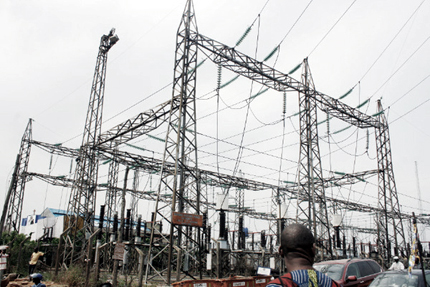Despite sustained directives by the Federal Government to the 11 power distribution companies (DisCos) to bridge the meter supply gap in the power sector through new investments, latest report by the industry regulators indicate that there exists 58 percent gap in the industry demands.
The latest report by the Nigerian Electricity Regulatory Commission on the level of metering of consumers nationwide reflected that out of the 8,135,730 registered electricity customers, only 3,434,003 (about 42 per cent) had provided with meters as of the end of the first quarter of this year.
According to the commission, the supply level in the first quarter of this year just represented a mere 3.9 percent drop when compared with the supply level in the last quarter of 2017 while registered electricity customers grew by 2.37 percent quarter-on-quarter.
The industry regulator attributed the increase in the number of registered customers to the ongoing enumeration by the Discos, which had helped them to capture some individual consumers who were previously consuming electricity through illegal connection to the networks.
NERC reported that three in every five registered electricity consumers are unmetered, with the Yola Disco having the lowest metering rate at 21 per cent.
It stated: “Metering still remains a key challenge facing the industry,” NERC said, adding that only two Discos, Benin and Port Harcourt, had metered up to 50 per cent of their customers as of the end of the first quarter of this year.
“A major initiative towards improving revenue collection in the Nigerian electricity industry is the provision of meters to all end-use consumers of electricity,” NERC added.
The regulator stated further that the Meter Asset Provider Regulations’ scheme was launched recently to enable third-party meter providers to work with the Discos in bridging the metering gap in the industry.
In addition, the MAP Regulations were introduced also to eliminate estimated billing practice, attract private investments into the provision of metering services, and close the metering gap through accelerated meter rollout.
The commission pointed out that “notwithstanding the growth in the registered customer population during the first quarter of 2018, the incremental meter deployment by Discos is significantly lower than the targeted quarterly metering stated in the performance agreement with the Bureau of Public Enterprises.
It reported that with the exception of Port Harcourt and Benin Discos, none of the remaining Discos had metered half of their registered customers.
“To this end, the commission shall continue to work relentlessly with the Discos to ensure total compliance with their respective metering targets as contained in their Performance Agreement with the BPE by enforcing the Meter Asset Provider Regulations.”
In the first quarter, the power distributors received a total of 108,874 complaints from their customers and resolved a total of 72,846, representing 67 per cent of the complaints received, according to the report.
NERC noted further that during the quarter in review, customer complaints were typically on metering, estimated billing and service interruption, among others, adding that “metering and billing dominated the customer complaints, both accounting for 64,197 (i.e. 59 per cent) of the total complaints in the first quarter of 2018.”
It said out of the N171.1 billion billed customers in the quarter, only N106.6bn was recovered, representing 62.3 per cent collection efficiency.
“Overall, the Discos’ collection efficiency remains abysmally poor, as just a little above the half of the revenue billed is recovered as at when due. The poor collection efficiency by the Discos has negatively impacted on the financial liquidity of the industry, which in turn, has led to reduced investment in the Nigerian Electricity Supply Industry,” the regulator added.
NERC noted that a major factor contributing to low collection efficiency “is customers’ dissatisfaction with estimated billing, which often resulted in unwillingness to pay.”
On the issue of the DisCos’ liabilities and obligations generally during the quarter in review, NERC reported that the Discos were issued a total invoice of N163.1 billion for energy received from Nigerian Bulk Electricity Trading Plc and for the services provided by the market operator in the first quarter of this year, but only settled N51.2 billion of the invoice bill, leaving a total deficit of N112 billion.
It noted that financial illiquidity remained the most significant challenge affecting the industry’s sustainability, adding that this challenge is partly attributed to non-cost-reflective tariffs and high technical and commercial losses aggravated by consumers’ apathy to payment arising from estimated billing and poor quality of supply in most load centres.
The regulator pointed out that although the low remittance by Discos to the NBET and the MOs was partly due to the low collection and existing tariff shortfall, noting however that the Discos seemed to have fixed their monthly remittances, thereby denying the NBET and the MOs to access their shares of the market funds.






